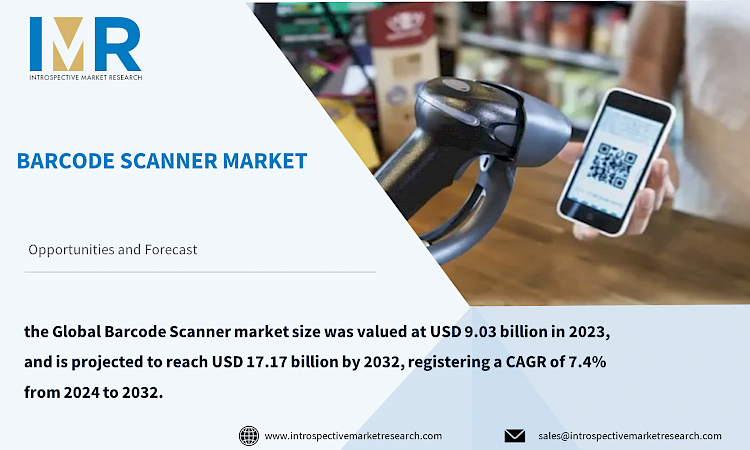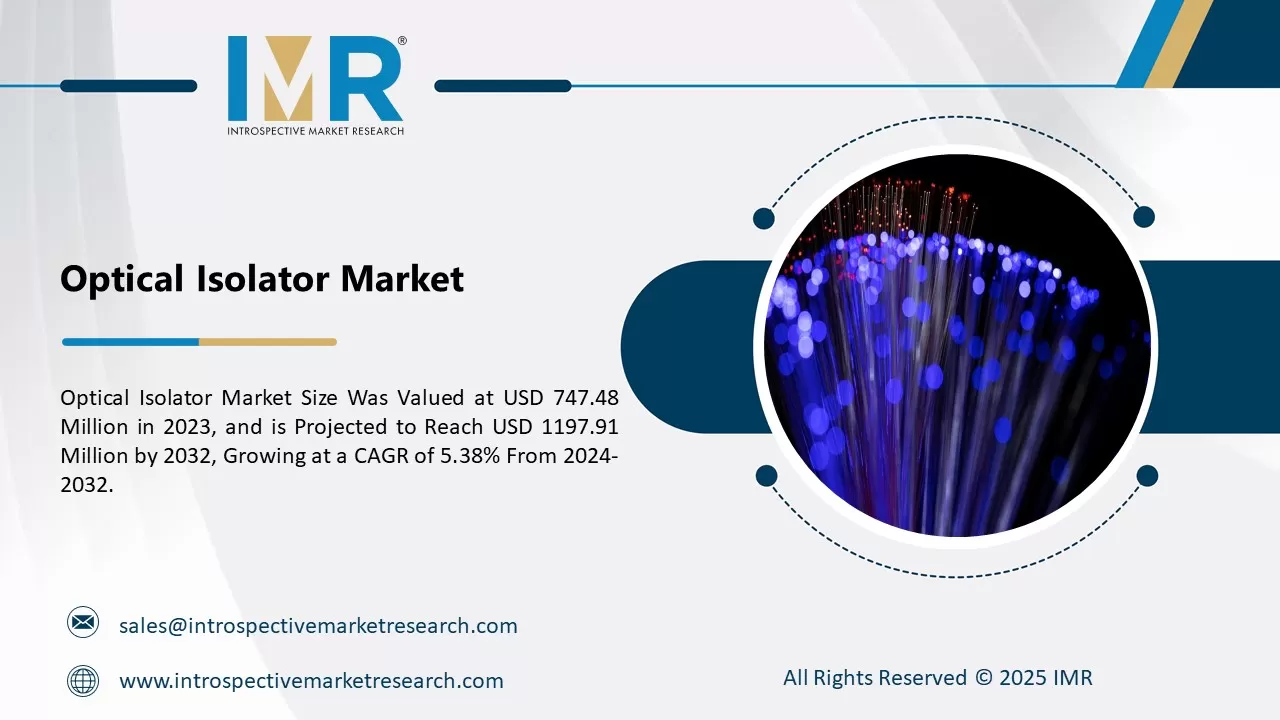The Global Barcode Scanner market size was valued at USD 9.03 billion in 2023, and is projected to reach USD 17.17 billion by 2032, registering a CAGR of 7.4% from 2024 to 2032.
Barcode Scanners are the small, hard pits found inside the fruits of the cherry tree. They can be used for other purposes such as extracting their oil which is used in skincare products and aromatherapy.
The market expansion has been fuelled by the rising demand of barcode scanners in various industries due to its ability to manage accurate data in quick time. It plays a crucial role by ensuring proper labelling, traceability, and regulatory compliance. It helps in rapid identification, tracking, and sorting of inventory in warehousing.
Monitoring the supply of products and managing inventory levels in real time are alWith the rise of e-commerce, the retail industry has placed a high value on barcode scanners for efficient and precise product identification, pricing, and inventory management. Hospitals, clinics, and pharmacies are also implementing barcode scanners for patient identification and medicine administration. It ensures precise data capture throughout production, quality control, and process optimization, which aids in the management of manufacturing and automation operations. Barcode scanners are frequently utilized in the hospitality and event management industries to improve crowd management, minimize wait times, and increase overall visitor experiences.
Barcode scanners make it simple and quick to capture data on product details, prices, and inventory levels. This makes it possible for e-commerce businesses to monitor and update their product databases instantly. Monitoring product stock and real-time inventory management are also beneficial. Barcode scanners are inexpensive and can offer e-commerce businesses great value by handling a wide varietBarcode scanners make it simple and quick to capture data on product details, prices, and inventory levels.
Global Barcode Scanner Market, Segmentation
The Barcode Scanner market is segmented based on Type, Technology, Application, and region.
Type:
Handheld barcode scanners are portable and can be used anywhere, anytime. This makes them highly adaptable and suitable for a variety of industries, including retail, warehousing, and healthcare, as users can take the scanner directly to the item to be scanned, saving time and effort. Users can quickly scan items without the need for a complex setup, thanks to the simple interface and minimal training requirements.
It is relatively affordable compared to fixed scanners and can be used with a smartphone or tablet. Handheld barcode scanners can scan a variety of barcodes, including 1D, 2D, and QR codes, making them versatile. Its portability, ease of use, affordability, flexibility, ergonomic design, and real-time data capture capabilities make it a desirable choice for a variety of industries.
Application:
Barcode scanners help manage inventory in logistics and warehousing by tracking products from manufacturing to distribution. This leads to better visibility, fewer errors, and faster processing time. Barcode scanners enable efficient scanning and tracking of packages, ensuring accurate product picking, packing, and delivery times, resulting in lower error rates, shorter shipping times, and higher customer satisfaction.
Barcode scanners capture valuable data for logistics and warehousing. They are capable of accurately capturing critical information such as product identification, location, and quantity in real time. This eliminates the need for manual data management, resulting in less human resources, lower labor costs, and fewer data errors. Accurate data enables precise inventory tracking and better decision-making, boosting efficiency and profitability.
Region:
With the growth of online retail platforms, e-commerce activities are experiencing a notable surge in the Asia Pacific region. Barcode scanners are becoming more and more necessary to manage inventory, track shipments, and guarantee accurate fulfillment as e-commerce becomes more and more popular. Barcode scanners are in high demand because they are essential for optimizing supply chain operations, inventory management, and production processes.The Asia Pacific region's growth in this market can be attributed to factors such as changing consumer preferences, rising disposable income, and growing population. The Asia-Pacific region's governments are launching a range of initiatives and policies to encourage digital transformation and the uptake of cutting-edge technologies in sectors that encourage the use of barcode scanners in supply chain management, logistics, and retail.
Some of The Leading/Active Market Players Are-
- Wasp Barcode Technologies (USA)
- Datalogic S.p.A. (Italy)
- Scandit AG (Switzerland)
- Juniper Systems (USA)
- Bluebird (South Korea)
- Denso (Japan)
- NCR (USA)
- Newland (China)
- Opticon (Netherlands)
- SICK (Germany)
- Zebra Technologies Corporation (USA)
- OCOM Technologies (China)
- JC Square Inc. (GMO Hosting & Security Inc.) (Japan)
- SATO Holdings Corporation (Japan), and Other Major Players.
Key Industry Developments
- In Feb 2024, The Vienna-based mobile data capture and analysis company Anyline announced, it launched a new type of autonomous drone inventory management software for warehouses. With this technology, a single drone operator can easily scan inventory, creating a safer and more accurate tracking process for warehouses.
- In March 2023, Cognex Corporation launched the DataMan 380 series of fixed-mount, image-based barcode readers equipped with C-mount Cognex high-speed liquid lenses. With AI-accelerated decoding, they are designed to read 1D and 2D codes in logistics and manufacturing operations, such as reading codes during robotic pick-and-place applications, scanning packages on pallets, and reading barcodes on tires.
Key Findings of the Study
- Global Barcode Scanner market growth driven by urbanization, eco-awareness, and government support.
- E-bikes offer a significant opportunity for longer commutes and hilly areas.
- Docked-sharing systems ensure convenience, organized bike access, and user-friendly amenities.
- Cities like New Delhi stand out due to high urbanization, creating a strong demand for Barcode Scanner services.





